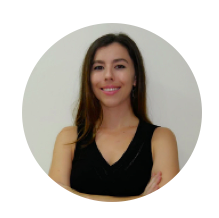Publications
FOCUS 73: Benefits Of Chatbots In Healthcare

Caroline BARD, managing director and Chief Security Officer of Drcom, discusses how machine learning applications are beginning to transform patient care.
Please tell us about Drcom and how it aims to change the future of medical diagnosis?
DRCOM is a digital and medical creative agency, we are supporting Life-science and pharmaceutical clients in designing innovative solutions to support HCP and patient needs.
Medical diagnosis encompasses several areas from being able to access the right information supporting diagnosis, working around patient/HCPs centricity to offer improved engagement and outcomes, to the more recent development on remote healthcare access during the COVID-19 pandemic.
What is the healthcare industry doing in terms of expanding its AI capabilities? Are applications like Chatbots and wearable health technology commonplace now?
Chatbots are increasingly used in the Healthcare industry to respond and engage with patients and HCPs, as well as to support personalized services and education such as Patient Support Program to improve adherence and awareness but also to help HCPs in their diagnostic. The Association of American Medical Colleges reported that the shortage of doctors would approach 90,000 by 2025 and could reach 105,000 in 2030. Chatbots can help instantly to reduce the workload of healthcare professionals while providing an engaging experience to patients, and ultimately help reduce the volume of unnecessary doctor visits.
Chatbots can be used in a variety of ways in healthcare - clinical trials, help support centres, information channels, branding communication and other platforms.
What are the challenges you face in terms of data accessibility?
Data and Analytics are an integrated component into healthcare organization systems (private, government, insurance etc.) and will help them run their activities more efficiently. Data-driven insights is one the key consideration to be able to provide tailored solution to HCPs and patients.
There is a constant increased need for data accessibility, which is here defined as data volume and value/quality. This data can be collected by different actors: HCP, hospitals, insurances etc.
There are 3 main points to keep in mind when talking about Healthcare Data accessibility. First, Healthcare Data represent a pile of medical information that can help understand a patient journey and predict future research needs. However, navigating the Health industry, data and compliance (from PDPA in Singapore to GDPR in Europe ) is essential to get a clean framework for the next upcoming years. With better access to data, allowing to draw complete patient journeys can help to reduce healthcare costs and improve the level of patients’ outcomes.
Data accessibility means not only collecting more data, which means having access to more information, but also being able to work cross-industry players to understand user journey and behaviours from an overall perspective.

Interview with Caroline BARD, managing director and Chief Security Officer of Drcom, for FOCUS #73. To read more articles from this issue, download your digital copy here


